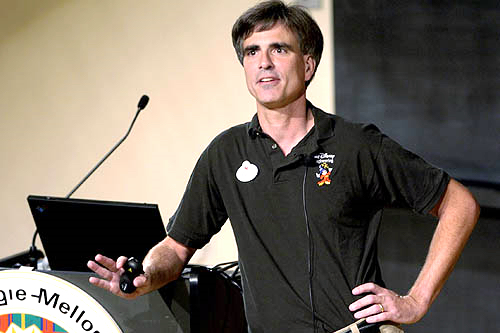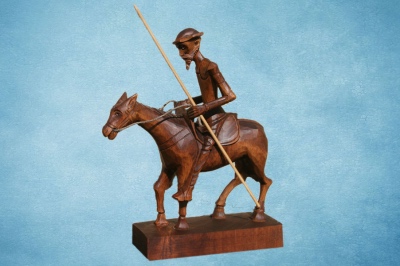Eleanor Roosevelt
|
This essay is about my rediscovering something that was right in front of my eyes all the time but about which I completely missed. I was born during WWII. Franklin D. Roosevelt had held our nation together during the Depression and guided us through most of WWII. As a consequence, FDR was viewed by millions as a caring light amid some very dark times. While we benefitted from FDR, many Americans overlooked Eleanor, his wife. While looking on the Internet for something unrelated to her, I stumbled over several essays about this First Lady. After reading those essays, I realized that I was not as well-informed as I thought. I knew things like she was Teddy Roosevelt's niece, and he gave her away at Eleanor and FDR's wedding. But more importantly, she was a great champion of civil rights in America, long before many white Americans even cared about equality for blacks. What I discovered was a treasure trove of thought that most Americans, including myself, missed. 
One of the most important things that I discovered was Eleanor's comment about facing life. Her statement was an insightful comment about dealing with what life presents you. "You gain strength, courage, and confidence by every experience by which you really stop to look fear in the face. You are able to say to yourself, 'I lived through this horror. I can take the next thing that comes along." When I came across that quote, the initial thought that raced through my mind was that Eleanor Roosevelt was someone who was used to dealing with fear. There was an authenticity to her statement, which comes from addressing a great deal of fear in her life. In the past decade, on several occasions, I have faced fear. I have faced the fear that I would die due to either a traumatic brain injury or prostate cancer. Therefore, I understand precisely what Roosevelt meant. You do gain "strength, courage, and confidence." However, beyond that truism, Roosevelt's comment that she could "take the next thing that comes along" reminded me of something that three of my mentors have mentioned. Randy Pausch, Don Quixote, and Teddy Roosevelt were into facing fear nobly. Pausch said, "We cannot change the cards we are dealt, just how we play the hand." Live life in spite of the reality that you weren't dealt the cards that you thought you deserved. Deal with what you see in your hand. Roosevelt and Pausch understood, if you want to live to the fullest, you will have to believe that you can take on fear...fear of the unknown. In fact, addressing the fear of dying can enable you to live more than could be imagined. If you haven't danced with death, trust me. It works. Another fear that related to my traumatic brain injury occurred while in the rehab hospital. I felt like I came very close to understanding what it would feel like just this side of the vegetative state. I was being treated in the rehab hospital having spent a month in ICU at a hospital near my home. While at the rehab hospital, I reacted adversely to some medication that I was taking. I could hardly stand up without falling down. For several days, the world was a cloudy never, never land of existence. I was afraid of being in a vegetative state. I was put in a type of crib with a helmet to avoid falling and damaging my brain. Another mentor, Don Quixote, was always willing to joist with any windmill that life threw at him. In the same manner that Roosevelt and Pausch understood addressing fear, the man of La Mancha was emboldened by the fear.
Interestingly, Teddy Roosevelt made a speech at the Sorbonne. This part of the speech is called, Man in the Arena.
Teddy Roosevelt pushed the notion of daring greatly. Which meant facing fear with courage, which is what Eleanor Roosevelt said. He was driven and wanted others to be the same. Fight the good fight, but if a person fails "...at least fails while daring greatly, so that his place shall never be with those cold and timid souls who neither know victory nor defeat." Eleanor Roosevelt dared greatly at nearly 60-years of age, she flew with Charles Anderson, who was a Tuskegee Airman. 
Eleanor flying with a Tuskegee Airman
Visit the On Seeing the Light page to read more about this topic.
Visit the The Last Lecture page to read more about this topic.
Visit the Dancing with Death page to read more about this topic.
Visit the "Don Quixote" page to read more about this topic.
Visit the Man in the Arena page to read more about this topic.
Visit The Mentors and Me page to read more about this topic. 08/31/16 Follow @mountain_and_me |












